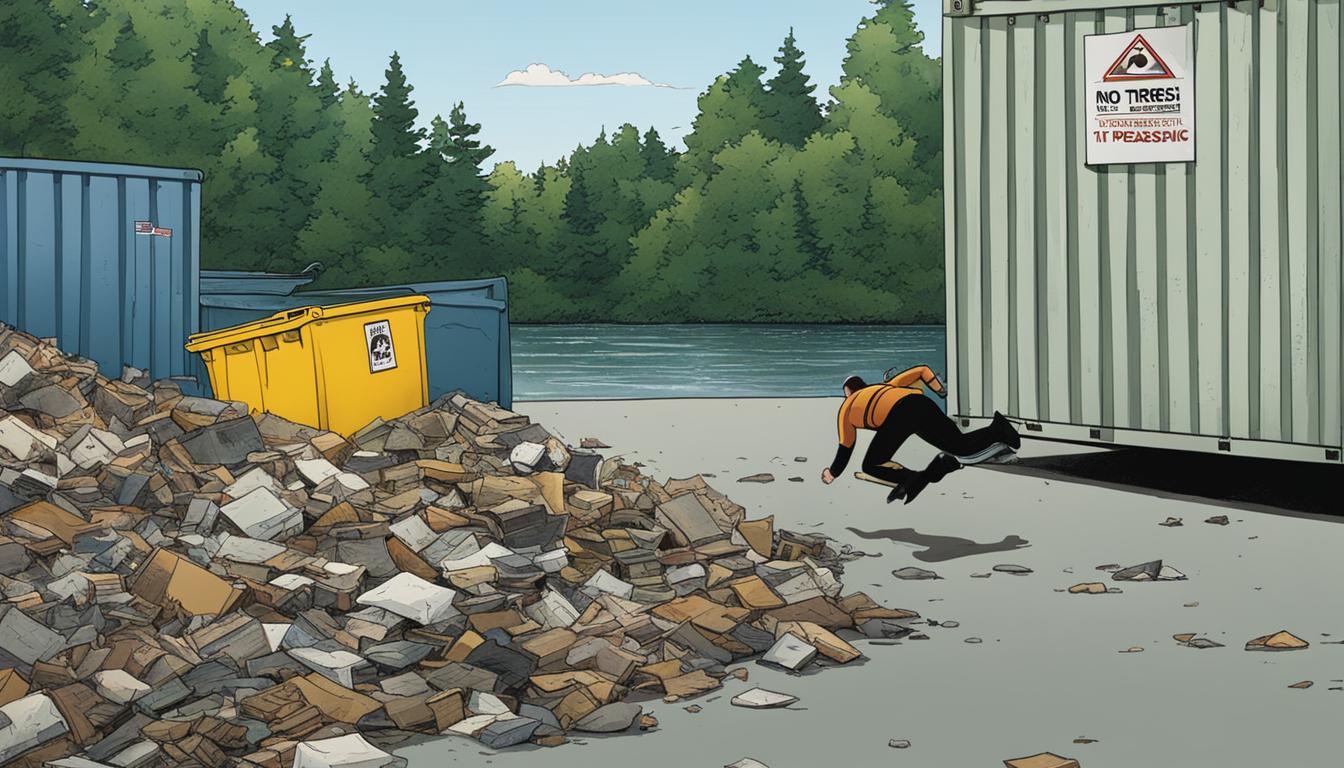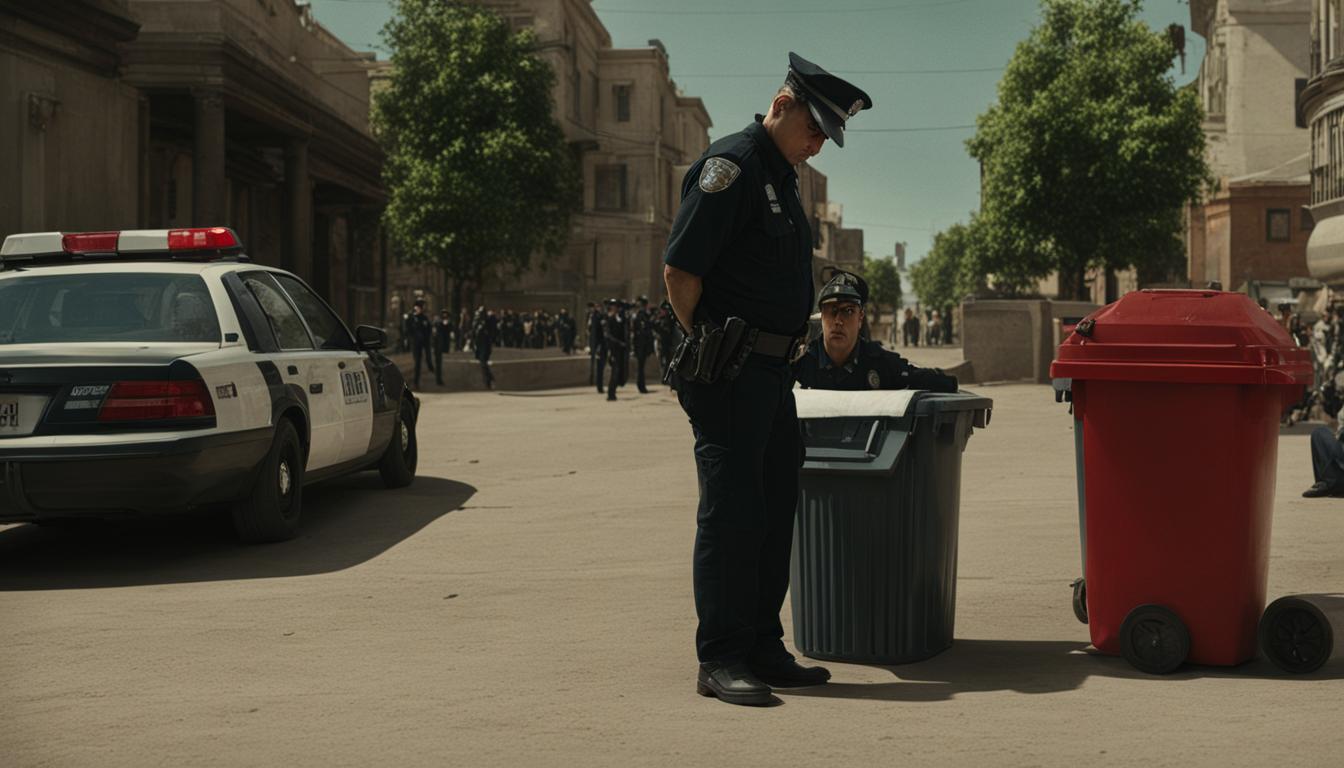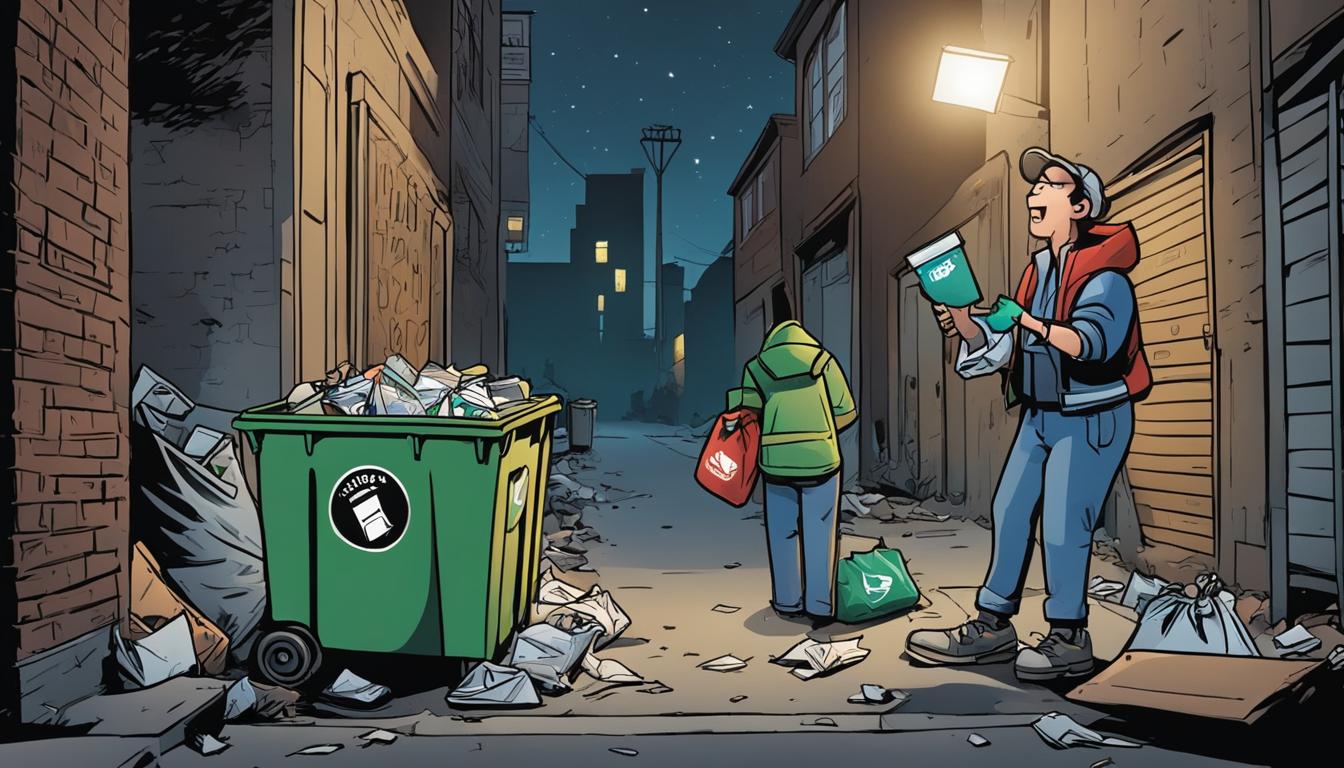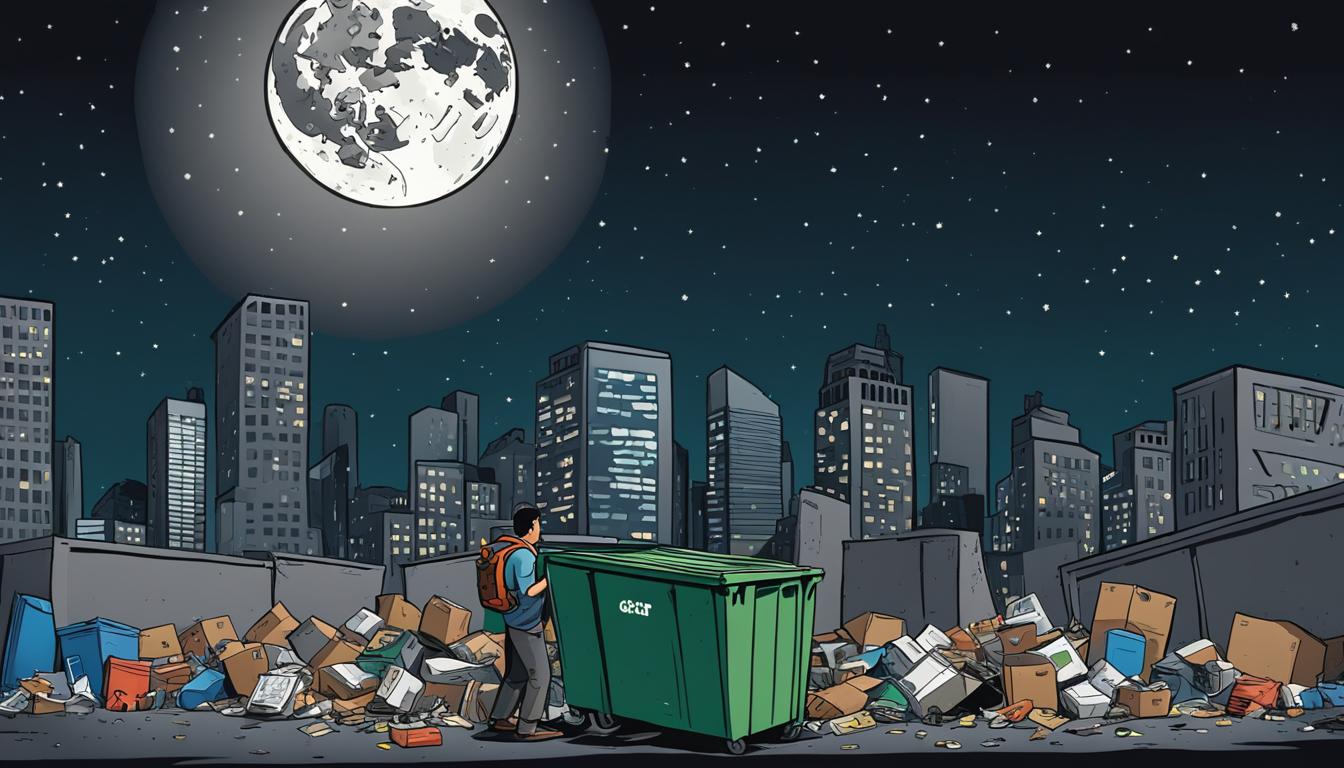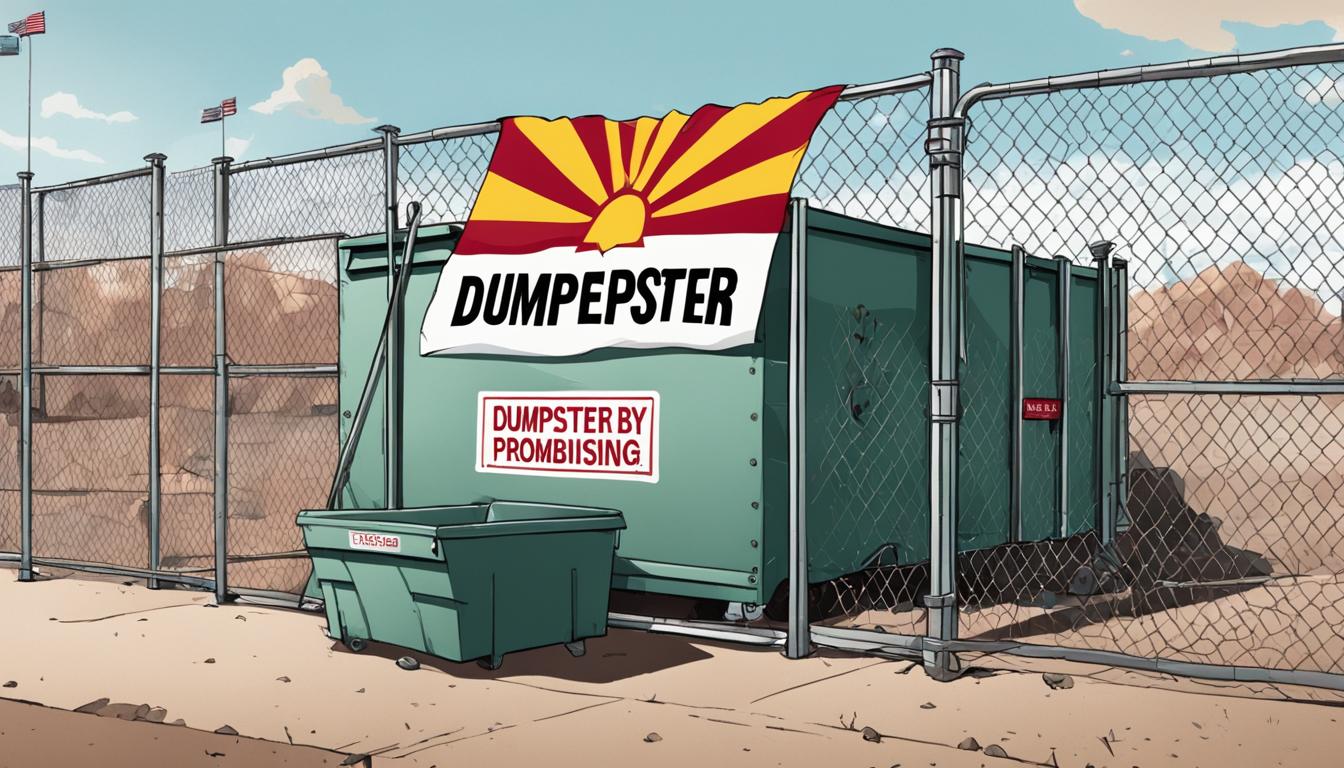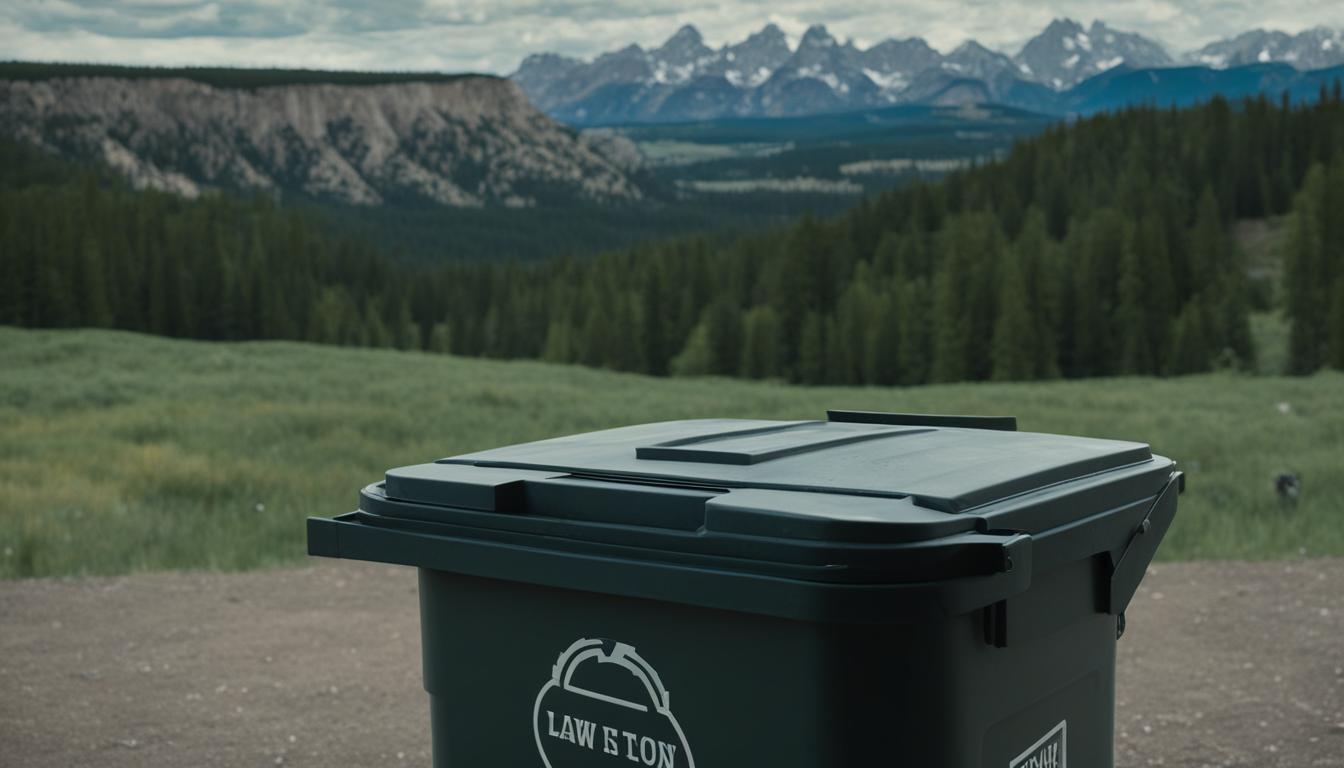Disclosure: This Post Contains Affiliate Links; We earn a commission on purchases.
Are you curious about the legality of dumpster diving in Maine? Dumpster diving, the practice of searching through dumpsters for discarded items, has gained popularity as a way to reduce waste and find hidden treasures. However, it’s important to understand the laws and regulations surrounding this activity to avoid any legal issues. In this article, we will explore the legality of dumpster diving in Maine and provide you with essential information to navigate this practice responsibly.
Key Takeaways:
- Dumpster diving is generally legal in Maine, but specific regulations may vary based on local municipalities and private property owners.
- Maine’s bottle refund program allows individuals to collect redeemable bottles from public trash cans without facing legal consequences.
- Trespassing, breaking locks, and disregarding “No Trespassing” signs can result in criminal charges for dumpster divers.
- While dumpster diving can yield valuable items, there are risks involved, such as encountering hazardous materials or conflicts with property owners and law enforcement.
- By researching local regulations, respecting private property, and exercising caution, individuals can engage in dumpster diving legally and responsibly.
Maine Dumpster Diving Regulations
In the state of Maine, dumpster diving is not explicitly prohibited by statewide legislation. However, it’s crucial for dumpster divers to be aware of and respect the regulations established by municipalities and private property owners to avoid legal repercussions. While there are no specific laws against dumpster diving, certain actions such as climbing fences, breaking locks, or disregarding “No Trespassing” signs can result in criminal charges.
To ensure you are dumpster diving within the bounds of the law in Maine, it is important to familiarize yourself with the specific regulations in your area. Municipalities and private property owners have the authority to establish their own rules regarding dumpster diving, so it’s essential to respect their property rights. This includes refraining from trespassing on private property or engaging in any illegal activities while dumpster diving.
By knowing and abiding by the unique regulations and laws related to dumpster diving in your area, you can enjoy this activity responsibly while avoiding any legal consequences. Remember, dumpster diving should always be undertaken with caution and consideration for private property to ensure a positive and lawful experience.
Benefits and Risks of Dumpster Diving
Dumpster diving can be an exciting and rewarding activity with its fair share of benefits and risks. Let’s explore what makes it a popular choice for some individuals while also considering the potential challenges.
The Benefits of Dumpster Diving
One of the key advantages of dumpster diving is the opportunity to find valuable items that others have discarded. From furniture and electronics to clothing and appliances, you never know what treasures you might uncover. These items can be repurposed, refurbished, or even sold for a profit, making dumpster diving a potential side hustle for resourceful individuals.
Additionally, dumpster diving serves as a form of recycling and reducing waste. By rescuing usable items and giving them a new life, dumpster divers contribute to sustainability efforts and help minimize landfill overflow.
The Risks of Dumpster Diving
While dumpster diving can be rewarding, it’s essential to acknowledge the potential risks involved. Hazardous materials, such as broken glass, sharp objects, or chemicals, can pose a danger to divers. It’s crucial to exercise caution and wear protective gear, such as gloves and sturdy footwear, to minimize the risk of injury.
Another risk to consider is the legal implications of dumpster diving. Trespassing on private property or engaging in illegal actions while diving can result in legal consequences. It’s crucial to respect property boundaries, adhere to local regulations, and avoid any conflicts with property owners or law enforcement.
“Dumpster diving is like a treasure hunt. You never know what you’ll find, but the thrill of discovering something valuable makes it all worthwhile.” – Jane Simmons, experienced dumpster diver
Despite the risks, dumpster diving can be a fulfilling and adventurous activity for those who choose to engage in it. By weighing the benefits against the risks and taking necessary precautions, individuals can enjoy the potential rewards while staying safe and within the boundaries of the law.

In the next section, we’ll provide valuable tips for successful dumpster diving in Maine, such as researching local regulations and identifying the best diving spots. Stay tuned!
Tips for Dumpster Diving in Maine
If you’re interested in dumpster diving in Maine, here are some tips to keep in mind:
- Research local regulations: Familiarize yourself with the specific rules and regulations regarding dumpster diving in your area, as they can vary between municipalities.
- Respect private property: Avoid trespassing on private property and always adhere to any “No Trespassing” signs or other indications of restricted access.
- Be cautious and considerate: Exercise caution when diving into dumpsters, as they may contain sharp objects, hazardous materials, or unsanitary conditions. Be mindful of leaving the area clean and undisturbed after your dive.
- Choose your timing: Dumpster diving at night or early in the morning can help you avoid unwanted attention and increase your chances of finding discarded items.
- Identify good diving spots: Construction sites, apartment complexes, retail stores, and grocery stores are examples of places where dumpsters may yield potentially valuable items.
Remember that dumpster diving is a personal choice, and it’s important to prioritize your safety and adhere to legal boundaries while engaging in this activity.
Conclusion
Legal dumpster diving in Maine allows individuals to salvage discarded items without the presence of statewide laws prohibiting the activity. However, it is essential to adhere to the specific regulations set by municipalities and private property owners to ensure compliance. By respecting property rights, being knowledgeable about local rules, and exercising caution, dumpster divers in Maine can enjoy the potential benefits of this practice while remaining within the boundaries of the law.
When engaging in dumpster diving, it is crucial to research and understand the regulations for dumpster diving in Maine. Familiarize yourself with the specific rules in your area to avoid any legal consequences. Respecting private property is paramount, ensuring that you do not trespass or ignore any “No Trespassing” signs to prevent potential criminal charges.
Additionally, exercising caution and being considerate is essential for your safety and the well-being of others. Be mindful of the presence of hazardous materials, sharp objects, or unsanitary conditions that might be present in dumpsters. After your dive, leave the area clean and undisturbed as you found it. Choosing the right timing, such as diving at night or early morning, can help maintain privacy and increase your chances of finding valuable items.
Identifying good diving spots, such as construction sites, apartment complexes, retail stores, and grocery stores, can increase your chances of finding potentially valuable items. However, it is crucial to remember that dumpster diving is a personal choice, and prioritizing your safety while adhering to legal boundaries is of utmost importance.
Source Links
- https://wcyy.com/is-dumpster-diving-legal-in-maine/
- https://92moose.fm/is-dumpster-diving-legal-in-maine/
- https://bizarrehobby.com/maine-dumpster-diving/

Subscribe to Our Newsletter

